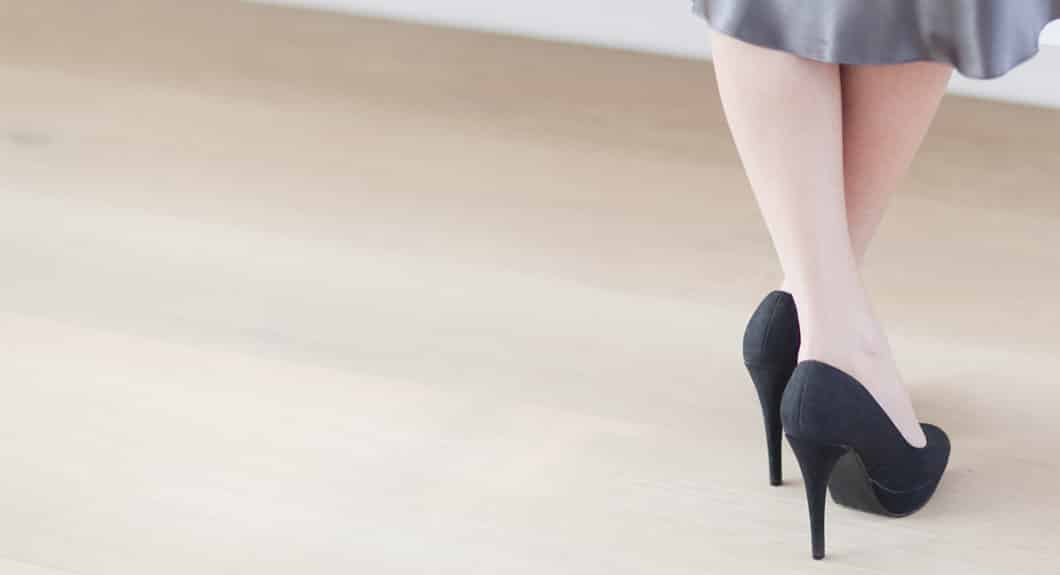AUGUST 01, 2013 As a licensed private investigator, Efrat Cohen is well aware of the power of the non-spoken word. The owner of Global Intelligence Consultants pays close attention to actions and the messages they send, so she was surprised to find her own nonverbal communication gave an unintended message.
After meeting with a communications coach, Cohen found that her habit of shallow breathing and waving her hands around made a negative impression.
Diminishing Poses
Cohen is one of many businesswomen who inadvertently engage in diminishing poses and gestures at the expense of their careers, says Sharon Sayler, an executive coach specializing in verbal and nonverbal communication, owner of Competitive Edge Communications and author of What Your Body Says (and how to master the message): Inspire, Influence, Build Trust, and Create Lasting Business Relationships.“
Businesswomen will ask why they aren’t being taken seriously … and it’s often because their body language communicates ‘little girl,’” Sayler says. “Many of these poses, while acceptable in social situations, make women in the business world look small and unimposing.”
Physiological Effects of Body Language
When a woman takes a confident, can-do stance, it not only positively affects her image in the eyes of others in the boardroom; it initiates positive physiological changes for her. Cohen points to research by Amy Cuddy of the Harvard Business School, who has found that a woman’s body language has a profound impact on her body chemistry.“Little-girl poses elevate the stress hormone, cortisol, making a woman feel less confident, whereas a power stance like the ‘Wonder Woman’ pose changes her body chemistry so that she feels more confident and successful,” says Sayler, who doesn’t suggest using the Wonder Woman stance in public, as it’s too aggressive. However, she does coach clients to take the stance in private to bolster confidence before important events.
Make sure you’re not squelching your chances of success by employing any of the following five poses.
1. Crossing your ankles while standing:
Women cross their ankles while standing because it is more comfortable, especially if they’re wearing high heels, but it is not a good idea, because it sends the message that you are shy and insignificant, says Sayler.
A confident pose is to stand with your back straight and your ankles uncrossed. If you are unable to stand this way in high heels, Sayler suggests wearing flats.
2. Fig leaf pose with hands while standing:
What Sayler calls the fig leaf pose consists of holding your hands over your groin area as if your hands are a fig leaf.
“Women and even men strike this pose, which gives the impression that you are unimportant,” she says. “The best option is to simply let your arms hang naturally by your sides. Another solution that sends a message of high expectations is to bend your elbows and keep your hands parallel to the ground while lightly clasping them together. You can also hold a tablet or book, but not a cellphone, as that suggests you don’t have time.”
3. Tipping or tilting your head:
Many women tip or tilt their heads when listening to someone speak as an acknowledgement of hearing and understanding the other person, but this gesture may suggest to others that they are confused or agree with what the speaker says, when they really don’t.
Sayler suggests keeping the chin parallel to the ground, which helps avoid this gesture, and if you feel the need to acknowledge that you are listening, nod very slightly.
4. Coy eye contact:
When a woman drops her chin and looks out high up in her eye sockets or up over her glasses, this is a submissive gesture that spells coy. “Flirty gestures may be fine in social situations, but such a message is not okay in the business world,” Sayler says. “We tend to drop our chins when we feel insecure, but the more we do that, the more insecure we feel.”
Instead, keep your chin parallel to the ground and make good eye contact, which communicates that you are an intelligent person sincerely interested in what the other person has to say.
5. Nervous habits:
Nervous mannerisms such as fidgeting, picking lint off your clothing, playing with your jewelry or smartphone or twisting or throwing back your hair are all signs that you are nervous and not confident, and these gestures make it likely you won’t be taken seriously. Sayler’s advice for curtailing a nervous habit is to concentrate on your breathing.
“Nervous habits tend to come out when you’re breathing rapidly,” she says. “Train yourself to breathe low and comfortably, and your nervous twitches will disappear.”
Now that you know what moves to make, you can take a stance that can help you succeed.
A freelancer since 1985, Julie Bawden-Davis has written for many publications, including Entrepreneur, Better Homes & Gardens and Family Circle.
Photo: Getty Images


